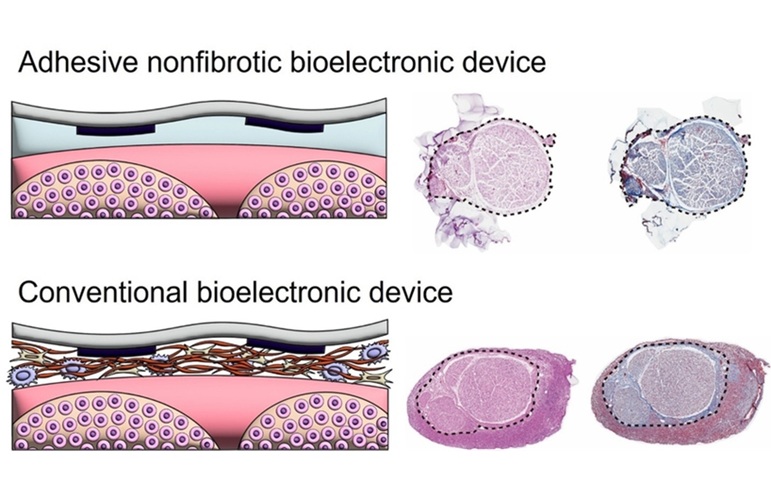Active Compound in Popular Heartburn Drug Pepcid Being Tested for COVID-19 Treatment
|
By HospiMedica International staff writers Posted on 29 Apr 2020 |
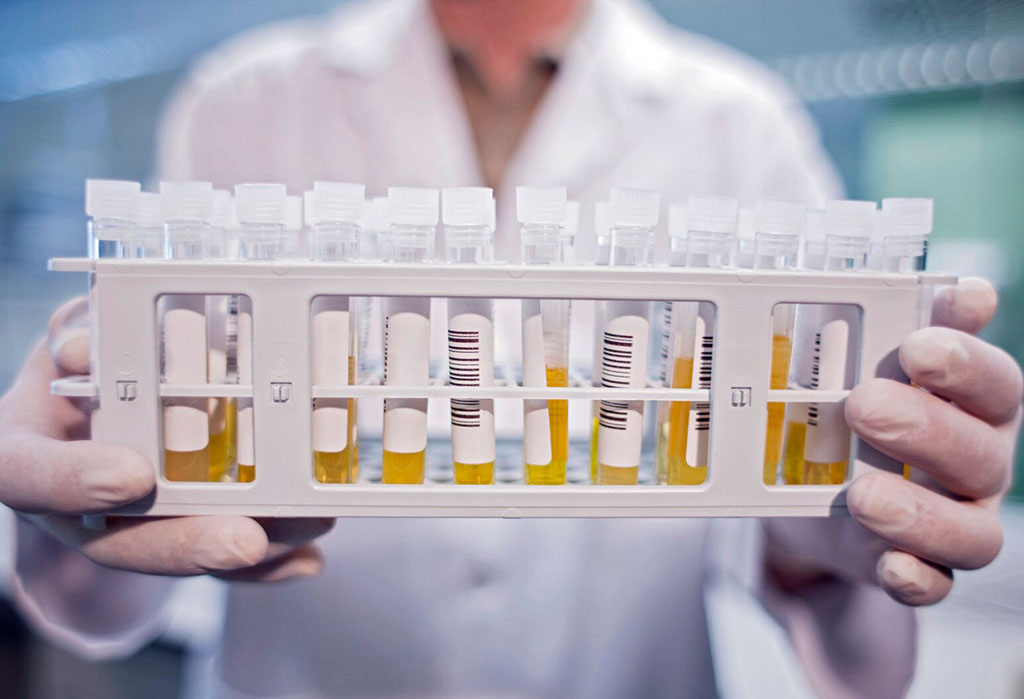
Illustration
A trial for famotidine, the active compound in the over-the-counter heartburn medication Pepcid, is underway at the Feinstein Institutes for Medical Research (Manhasset, NY, USA) to study if the drug can make a difference in the treatment of COVID-19 patients.
The researchers decided to conduct a drug trial for famotidine after encouraging reports from China. A review of 6,212 COVID-19 patient records revealed that a large number of survivors had been experiencing chronic heartburn and were taking famotidine instead of omeprazole (Prilosec) which is more expensive and preferred in the US and among the wealthier population in China. Hospitalized COVID-19 patients who were taking famotidine seemed to have a lower death rate of 14% as against 27% for patients who were not taking the drug.
Additionally, molecular modeling results also suggested that famotidine, which appears to bind to a key enzyme in severe acute respiratory syndrome coronavirus 2 (SARS-CoV-2), could deliver results. Famotidine is believed to bind to an enzyme critical to COVID-19. Similar to how protease inhibitors, which are used to treat HIV, stop the virus, famotidine’s structure can stop the coronavirus from replicating, at least theoretically.
The Feinstein Institutes for Medical Research received clearance from the US Food and Drug Administration to conduct a trial using the intravenous version of famotidine. In addition to Gilead Sciences’ remdesivir and the anti-malarial drug hydroxychloroquine, the researchers are now also assessing famotidine in a small clinical trial which has enrolled 187 critical COVID-19 patients so far, including several on ventilators, and aims for a total of 1174 people. In the trial the patients are being intravenously administered nine times the amount of famotidine that a person would normally take to treat heartburn,
The researchers have been keeping the clinical trial of famotidine under wraps to ensure sufficient supply for their study, as well as avoid a rush to medication stores for the drug which would deny people with heartburn or stomach ulcers access to the drug.
Related Links:
Feinstein Institutes for Medical Research
The researchers decided to conduct a drug trial for famotidine after encouraging reports from China. A review of 6,212 COVID-19 patient records revealed that a large number of survivors had been experiencing chronic heartburn and were taking famotidine instead of omeprazole (Prilosec) which is more expensive and preferred in the US and among the wealthier population in China. Hospitalized COVID-19 patients who were taking famotidine seemed to have a lower death rate of 14% as against 27% for patients who were not taking the drug.
Additionally, molecular modeling results also suggested that famotidine, which appears to bind to a key enzyme in severe acute respiratory syndrome coronavirus 2 (SARS-CoV-2), could deliver results. Famotidine is believed to bind to an enzyme critical to COVID-19. Similar to how protease inhibitors, which are used to treat HIV, stop the virus, famotidine’s structure can stop the coronavirus from replicating, at least theoretically.
The Feinstein Institutes for Medical Research received clearance from the US Food and Drug Administration to conduct a trial using the intravenous version of famotidine. In addition to Gilead Sciences’ remdesivir and the anti-malarial drug hydroxychloroquine, the researchers are now also assessing famotidine in a small clinical trial which has enrolled 187 critical COVID-19 patients so far, including several on ventilators, and aims for a total of 1174 people. In the trial the patients are being intravenously administered nine times the amount of famotidine that a person would normally take to treat heartburn,
The researchers have been keeping the clinical trial of famotidine under wraps to ensure sufficient supply for their study, as well as avoid a rush to medication stores for the drug which would deny people with heartburn or stomach ulcers access to the drug.
Related Links:
Feinstein Institutes for Medical Research
Latest COVID-19 News
- Low-Cost System Detects SARS-CoV-2 Virus in Hospital Air Using High-Tech Bubbles
- World's First Inhalable COVID-19 Vaccine Approved in China
- COVID-19 Vaccine Patch Fights SARS-CoV-2 Variants Better than Needles
- Blood Viscosity Testing Can Predict Risk of Death in Hospitalized COVID-19 Patients
- ‘Covid Computer’ Uses AI to Detect COVID-19 from Chest CT Scans
- MRI Lung-Imaging Technique Shows Cause of Long-COVID Symptoms
- Chest CT Scans of COVID-19 Patients Could Help Distinguish Between SARS-CoV-2 Variants
- Specialized MRI Detects Lung Abnormalities in Non-Hospitalized Long COVID Patients
- AI Algorithm Identifies Hospitalized Patients at Highest Risk of Dying From COVID-19
- Sweat Sensor Detects Key Biomarkers That Provide Early Warning of COVID-19 and Flu
- Study Assesses Impact of COVID-19 on Ventilation/Perfusion Scintigraphy
- CT Imaging Study Finds Vaccination Reduces Risk of COVID-19 Associated Pulmonary Embolism
- Third Day in Hospital a ‘Tipping Point’ in Severity of COVID-19 Pneumonia
- Longer Interval Between COVID-19 Vaccines Generates Up to Nine Times as Many Antibodies
- AI Model for Monitoring COVID-19 Predicts Mortality Within First 30 Days of Admission
- AI Predicts COVID Prognosis at Near-Expert Level Based Off CT Scans
Channels
Critical Care
view channel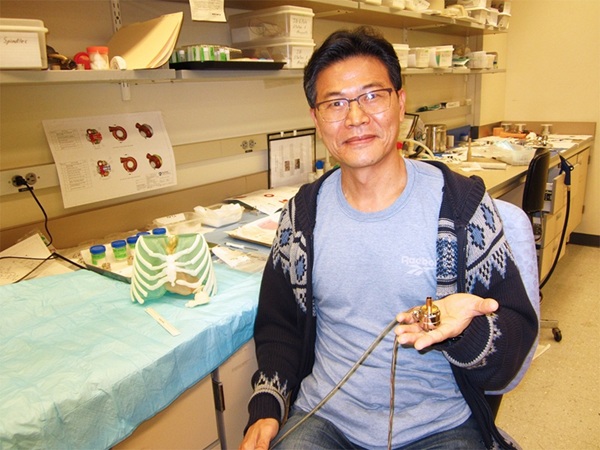
Ventricular Assist Device Offers Long-Term Use in Children Waiting for Donor Heart
Children with severe heart failure often face long and dangerous waits for a donor heart, with limited options to keep them stable during this period. For patients between the ages of one and 11, there... Read more
Precision Approach Improves Immunotherapy Effectiveness for ICU Patients with Sepsis
Sepsis occurs when the immune system responds abnormally to an infection, often triggering life-threatening organ failure. Despite affecting around 49 million people globally each year and causing approximately... Read moreSurgical Techniques
view channel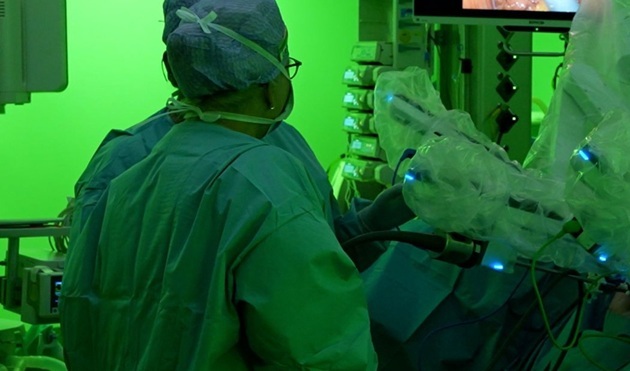
Minimally Invasive Surgery Proven Safe and Effective for Complex ‘Whipple’ Procedure
Tumors of the pancreatic head often require a highly complex operation known as pancreatoduodenectomy or the Whipple procedure. This surgery involves removing multiple structures and creating several internal... Read more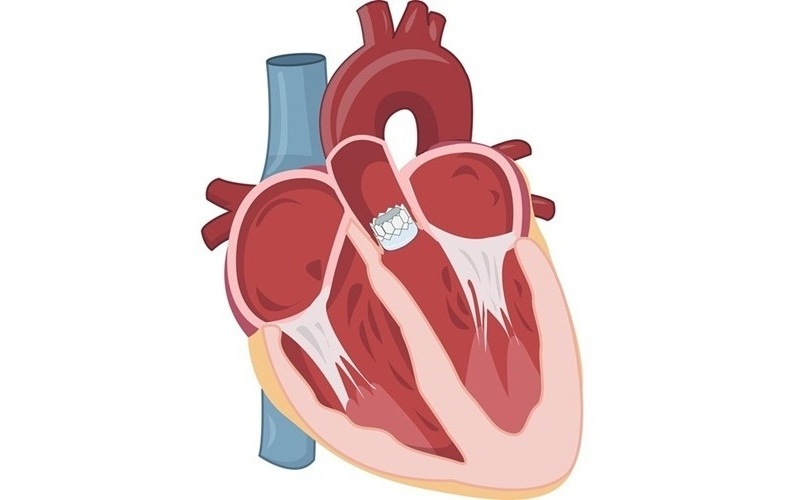
Catheter-Based Procedures Offer Less Invasive Option for Treatment of Valvular Disease
Valvular heart disease, caused by tight or leaky valves between heart chambers, affects up to 10% of older adults and leads to more than 120,000 deaths globally each year. Traditional open-heart surgery... Read morePatient Care
view channel
Revolutionary Automatic IV-Line Flushing Device to Enhance Infusion Care
More than 80% of in-hospital patients receive intravenous (IV) therapy. Every dose of IV medicine delivered in a small volume (<250 mL) infusion bag should be followed by subsequent flushing to ensure... Read more
VR Training Tool Combats Contamination of Portable Medical Equipment
Healthcare-associated infections (HAIs) impact one in every 31 patients, cause nearly 100,000 deaths each year, and cost USD 28.4 billion in direct medical expenses. Notably, up to 75% of these infections... Read more
Portable Biosensor Platform to Reduce Hospital-Acquired Infections
Approximately 4 million patients in the European Union acquire healthcare-associated infections (HAIs) or nosocomial infections each year, with around 37,000 deaths directly resulting from these infections,... Read moreFirst-Of-Its-Kind Portable Germicidal Light Technology Disinfects High-Touch Clinical Surfaces in Seconds
Reducing healthcare-acquired infections (HAIs) remains a pressing issue within global healthcare systems. In the United States alone, 1.7 million patients contract HAIs annually, leading to approximately... Read moreHealth IT
view channel
EMR-Based Tool Predicts Graft Failure After Kidney Transplant
Kidney transplantation offers patients with end-stage kidney disease longer survival and better quality of life than dialysis, yet graft failure remains a major challenge. Although a successful transplant... Read more
Printable Molecule-Selective Nanoparticles Enable Mass Production of Wearable Biosensors
The future of medicine is likely to focus on the personalization of healthcare—understanding exactly what an individual requires and delivering the appropriate combination of nutrients, metabolites, and... Read moreBusiness
view channel
Philips and Masimo Partner to Advance Patient Monitoring Measurement Technologies
Royal Philips (Amsterdam, Netherlands) and Masimo (Irvine, California, USA) have renewed their multi-year strategic collaboration, combining Philips’ expertise in patient monitoring with Masimo’s noninvasive... Read more
B. Braun Acquires Digital Microsurgery Company True Digital Surgery
The high-end microsurgery market in neurosurgery, spine, and ENT is undergoing a significant transformation. Traditional analog microscopes are giving way to digital exoscopes, which provide improved visualization,... Read more
CMEF 2025 to Promote Holistic and High-Quality Development of Medical and Health Industry
The 92nd China International Medical Equipment Fair (CMEF 2025) Autumn Exhibition is scheduled to be held from September 26 to 29 at the China Import and Export Fair Complex (Canton Fair Complex) in Guangzhou.... Read more













